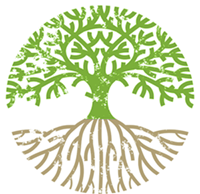About C.G. Jung
 Carl Gustav Jung was born in 1875 near Lake Constance in Switzerland. He trained and worked as a psychiatrist and was one of the early members of the newly developing psychoanalytic movement. He was an admirer of Freud, and collaborated with him for a number of years until, in 1913, the relationship broke down irrevocably. Jung had been the first President of the International Psychoanalytic Association as well as editor of the Jahrbuch, but that period ended and Jung was thrown into a personal crisis and search, out of which he developed his own school of analysis which he called Analytical Psychology.
Carl Gustav Jung was born in 1875 near Lake Constance in Switzerland. He trained and worked as a psychiatrist and was one of the early members of the newly developing psychoanalytic movement. He was an admirer of Freud, and collaborated with him for a number of years until, in 1913, the relationship broke down irrevocably. Jung had been the first President of the International Psychoanalytic Association as well as editor of the Jahrbuch, but that period ended and Jung was thrown into a personal crisis and search, out of which he developed his own school of analysis which he called Analytical Psychology.
The split between Jung and Freud, many have said, was inevitable, but it came about through a disagreement about the role of sexuality. Jung thought that Freud had given sexuality too pivotal a role and he thought that human activity shouldn’t be simply ‘reduced’ to sexual impulses. He felt that what he saw as some of the higher functions of the mind, such as artistic creativity and spiritual experience, should not be seen simply as ‘sublimations’ or displacements of the sexual drive.
The persona, the shadow, individuation
Jung introduced many new ideas into psychology, some of which have passed into everyday language, such as archetype, complex, persona, introversion and extroversion. More significantly, he founded a system of thought which has directly helped very many people and indirectly influenced countless more, as well as having influenced mainstream culture itself.
Jung had a deep respect for the individual and for the wisdom of the psyche itself. He thought that if we could learn to listen to and trust in our own feelings, thoughts, dreams, and intuitions we could integrate the under-developed or disavowed parts of ourselves – what he called the shadow aspects – and that this would lead to a significant development of the personality. He thought that the personality had a natural tendency to develop toward wholeness, a process which he called individuation.
Dreams and the purposive nature of the psyche
Thus he thought, in contrast to Freud, that the apparently unacceptable or worthless thoughts, feelings, dreams or desires, or even difficulties and ‘symptoms’, could be a new element of the personality trying to break through. He thought that the unconscious was not ‘the dustbin of the psyche’, as he characterised Freud as saying, but rather that it was the base material which, like the alchemists of old held, could be transformed into the ‘gold’ of personality development.
For Jung all these things had meaning and purpose if we could only understand them. Unlike Freud he thought that dreams were not disguised or censored wishes, but rather they were symbols, full of meaning, that only needed to be understood and their message followed. To give an example from one of Jung’s own dreams: he thought that a dream of some skulls and bones found in a cavern deep beneath the house he was exploring (in the dream) did not refer to an Oedipal death wish he held toward Freud, as father figure (which Jung thought was Freud’s interpretation of the dream); rather he saw it as a symbol for the ancient part of the mind which we have in common with all other people and with our ancestors.
Archetypes
This dream played a part in his development of the concept of archetypes – a view that said we each have a similar array of elements of the personality: the persona (the front we show the world), the ego (a hero figure who must struggle to find their place in the world), the shadow (the undeveloped elements of the personality that are overlooked or rejected), the anima and the animus (the feminine aspect of a man and the masculine aspect of a woman), the trickster (the part that plays, experiments and wheedles out of trouble), and the wise old man (representing the wisdom of the psyche itself).
The self
Jung thought that modern man was much too caught up with himself and thought himself much too powerful and in control of things. He felt that we had to realise that we have only limited control over ourselves and the world – that our egos are limited – and that we have to learn to listen to the wisdom of the self that lies within us. This self, which lies beyond our conscious control (we can’t just make ourselves into whatever we want to be), will generate reactions, dreams, feelings and responses which, if we do not ignore them, will lead us to a development of the personality - the process of individuation.
Jung’s view of analysis
This respect for the other, whether it is the other person, or what feels 'other' in ourselves, as well as the recognition of the limitations in ourselves, is reflected in his view of the practice of psychotherapy itself. He recognised that the analyst and patient are two individuals who will mutually influence each other. The analyst must not, indeed cannot, impose their view on the patient, but rather the two are ‘co-workers’ attempting to understand, together, what the patient brings. As Jung said: “only what is really oneself has the power to heal”.
The process of analysis, therefore, is not simply a matter of overcoming problems (although it may also be that), it is a matter of helping the individual to become congruent with their true self.

